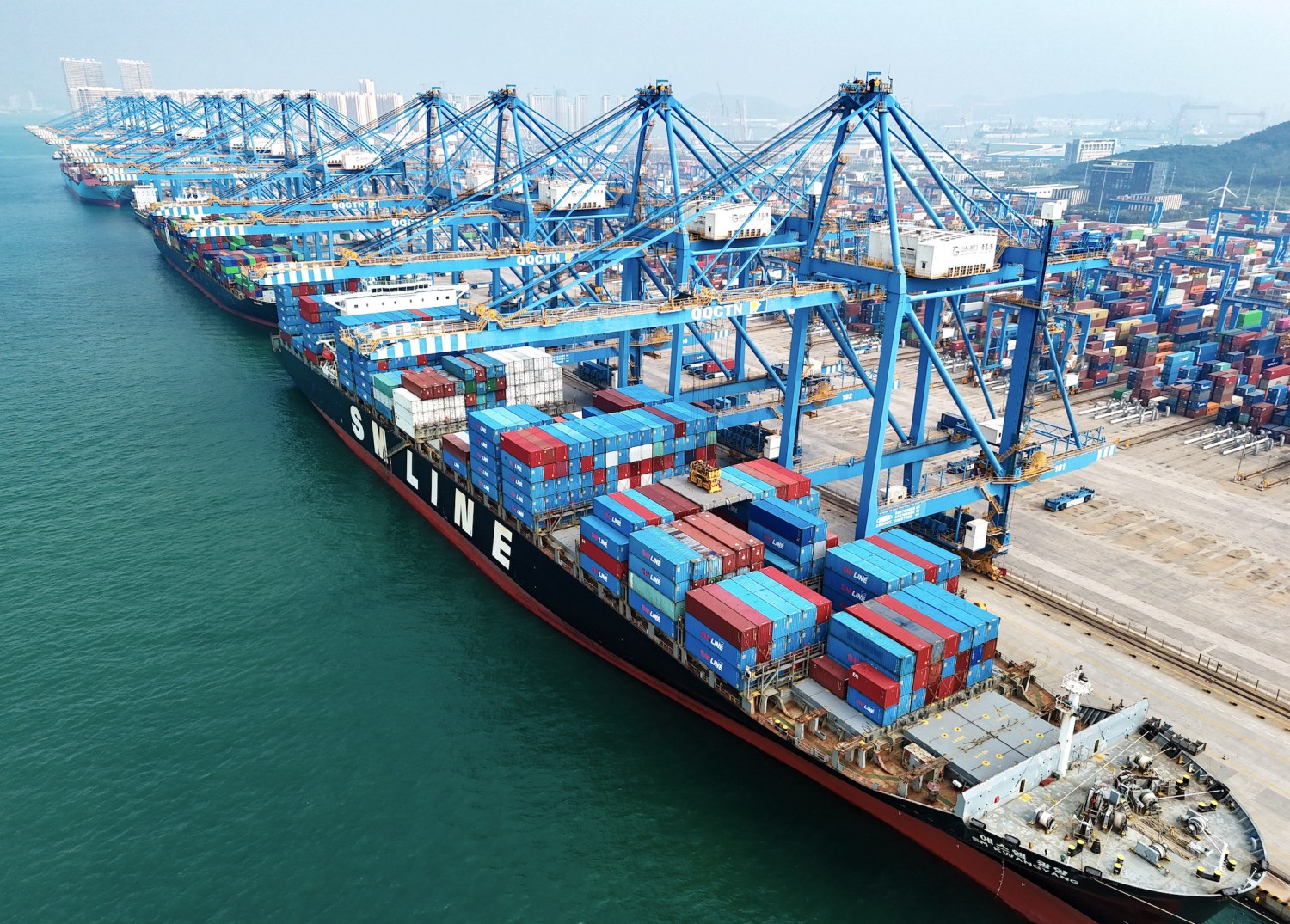Cameron F. Kerry, Mary E. Lovely, Pavneet Singh, Liza Tobin, Ryan Hass, Patricia M. Kim, and Emilie Kimball

Dozens of freighters dock for loading and unloading at the Qingdao section of the Shandong Pilot Free Trade Zone in Qingdao, Shandong province, China, Sept 27, 2023.
The Biden administration’s National Security Strategy identifies China as “the only competitor with both the intent to reshape the international order and, increasingly, the economic, diplomatic, military, and technological power to do it.” Given this assumption, does China’s continued economic growth present an intolerable risk to America’s national security? Should the United States seek to limit China’s economic growth in order to protect itself? Is it possible for the United States to champion both free and open markets while placing sweeping limitations on a rival state’s access to goods and services? What kind of limits should Washington place on trade with China to protect U.S. national interests?
To answer these questions and articulate the policy choices U.S. policymakers are facing, Ryan Hass, Patricia M. Kim and Emilie Kimball, co-leads of the Brookings Foreign Policy project: “Global China: Assessing China’s Growing Role in the World,” convened a group of leading experts — Cameron F. Kerry, Mary E. Lovely, Pavneet Singh, and Liza Tobin — to engage in a written debate examining how the United States should manage its economic relationship with China.
No comments:
Post a Comment